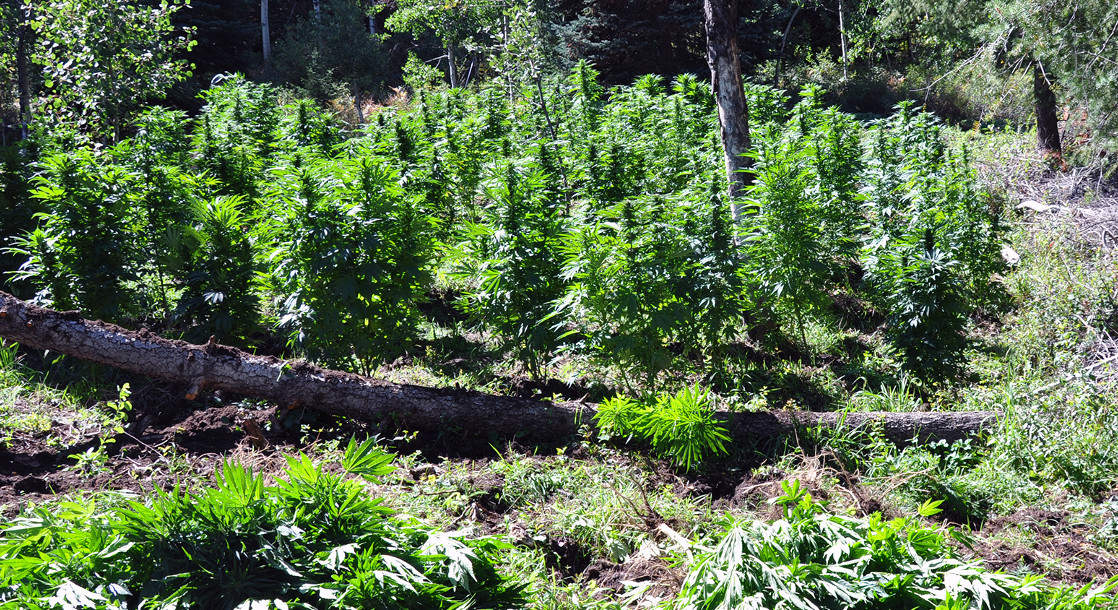As of last November, it has been legal for California residents to grow up to six cannabis plants for personal use, or to apply for a permit to grow a larger quantity of marijuana to sell. But law enforcement have reported that the majority of growers in Northern California have chosen to forego the legal licensing process. Many of these growers are cultivating marijuana for the black market in states where cannabis is still illegal, as customers in those states are willing to pay much higher prices for weed.
Mendocino County officials have received around 700 applications for cannabis cultivation permits, but there are reportedly several thousand growers in the county. “There are very few areas you can go in the county and not find marijuana — it’s everywhere,” said Mendocino County Sheriff’s Office lieutenant Bruce Smith. “The vast majority aren’t permitted.”
Hezekiah Allen, executive director of the California Growers Association, estimates that only 11 percent of all cannabis growers in the “Emerald Triangle” of Mendocino, Humboldt, and Trinity counties have applied for permits. “I know that the numbers don’t look great; there are a lot of folks that aren’t coming in,” he said. “People are losing faith in this process.”
Farmers have been growing cannabis illegally in the Emerald Triangle for decades, but the number has increased as more and more entrepreneurs have decided to get involved in the cannabis industry. “I’ve arrested grandparents, parents and grandchildren in different years for growing marijuana on the same piece of property,” said Mendocino County Sheriff Thomas Allman. “You get into a generational thing that’s almost like moonshine. People think, ‘Why do I have to get permits? My parents didn’t have to and my grandparents certainly didn’t have to.’”
“You have folks who have been operating for two decades with maybe some local oversight and some with no oversight at all,” Lori Ajax, head of the California Bureau of Cannabis Control, said. “You want to first give people a chance to get into that regulated market. And then it’s going to take some strong enforcement.”
Proposition 64 changed the punishment for possession of any amount of marijuana from a felony to a misdemeanor. Cannabis attorney Sean McAllister said that the black market for weed is smaller in Colorado, where large-scale possession of unregulated marijuana is still a felony. “As someone who has lived through the transition in Colorado, when I go to California I am definitely shocked to see that people in the industry seem very ill-prepared for the transition,” McAllister said.
“I think we can all agree that your average pot smoker shouldn’t be in prison,” Mendocino County Sheriff’s Office lieutenant Shannon Barney said. “But I think everybody can also agree that punishment for a major trafficker needs to be more severe.” The sheriff's department said that they prioritize raiding illegal grows that are on public lands as well as those causing environmental damage. Local police have raided 74 sites and destroyed almost 100,000 illegal cannabis plants so far this year.











